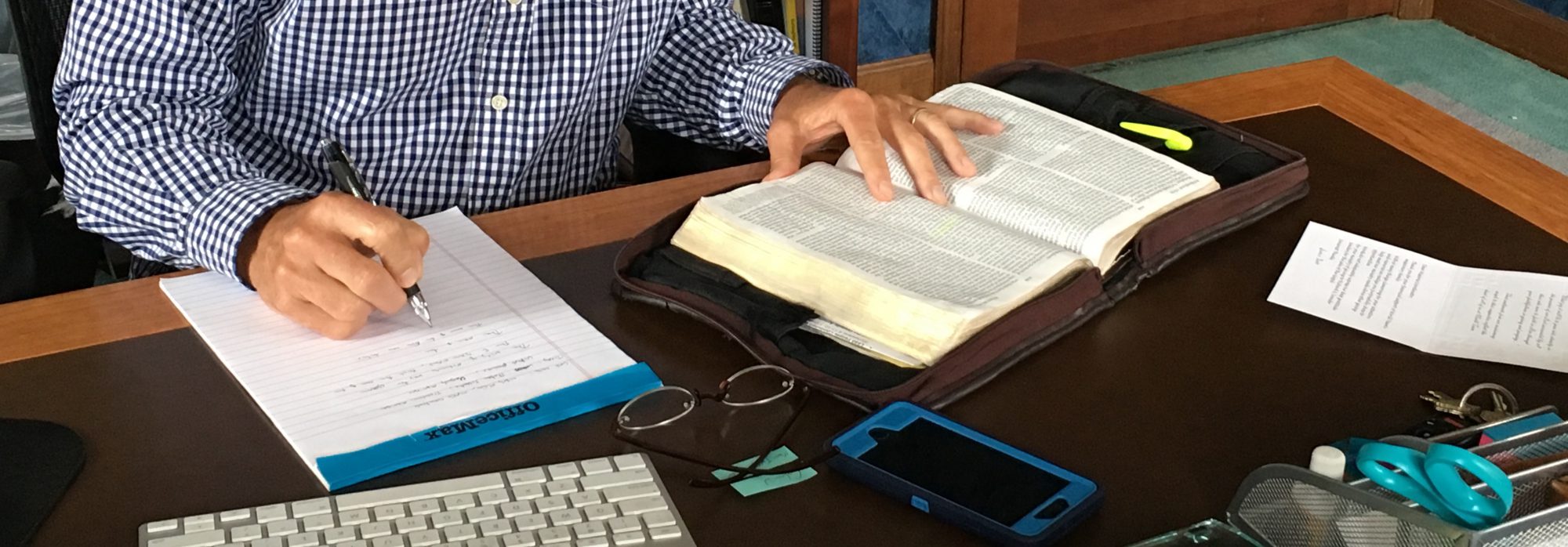It was Sunday morning, and the ushers passed the offering plates through the congregation.
My great-grandmother, Jessie Hauser, reached for the pocketbook beside her to get her offering envelope. She couldn’t find it. Looking up and seeing the men with the plates getting closer to her pew, Grandma began to get “flustrated,” as she would say. She rifled through the purse and finally began to dump its contents onto her lap while muttering, “Where is that offering? I know I brought it.”
Meanwhile, the lady sitting next to her began to tap her on the arm and whisper, “Jessie! Jessie!” Grandma Hauser paid her a great no mind and continued to search for her offering, finally whispering loudly, “If I live long enough to get home, I am going to clean this out!” That’s when the elderly lady finally broke through Grandma’s concentration and said, “Jessie, that’s my pocketbook.”
I remember that story whenever I read through the scene that presents itself in Luke 21. The setting is the temple. Jesus is sitting opposite the treasury, meaning that he is in the court of the women, where the brass receptacles were placed to receive the offerings of the worshipers.
Some give modest amounts, and their coins make an audible sound as they are dropped into the brass, trumpet-shaped bowls. The rich make a splash with their offerings, and the cascade of coins has its desired effect: All within earshot turn, raising their eyebrows in admiration or envy.
Then a poor widow approaches the treasury, reaching into her pouch for her offering. “Plink, plink.” The sound of her two coins, called lepta (worth about one-fourth of one cent), can barely be heard. She turns to walk away, and Jesus excitedly calls his disciples to himself.
“Hey, guys, come here. See that little woman walking away from the treasury? She just gave more than that rich man who is headed out, the guy stopping to glad-hand and back-slap with all who admire his ponderous gift as they bow and scrape to him.”
The disciples were stunned. “She gave more than the rich man? How much did this woman give and where did it come from?”
“She gave two lepta.”
“Uh, Lord, you got us on this one. I mean, two lepta is a joke. It’s nothing. She gave two lepta, and that is more than the rich?”
“Yes. They gave out of their abundance. She gave out of her poverty. They put in a portion. She put in all.”
What can we learn from Jesus here about giving? First, God looks at proportion, not amount. Jesus did not marvel at how much was given. He marveled at how much was left. The rich could give large amounts and never miss it. The widow gave all that she had. Second, giving does not make us God’s benefactor but reminds us that He alone is our benefactor. The widow acknowledged with her giving that God owned her completely, and that her life was in His hands. Third, in God’s economy, giving is sacrifice. After all, that’s how God himself gave in sending His Son.
The poor widow gave recklessly, with abandon. The rich man could walk away from the temple that day and pat his pocket and find money, and look in his bag and find money, and go to his place of business and find money. The poor widow put in her two cents, and she was done. She walked away from the temple that day completely abandoned to God as her only hope.
What would it be like to give like that?

Thanks!
LikeLike
Good stuff!
LikeLike